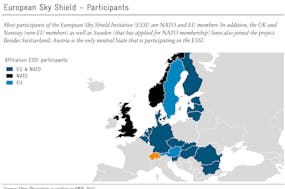The Swiss hotel industry will continue to benefit from a special 3.8% VAT rate until 2027, instead of the standard 8%. On May 31, the National Council endorsed the Council of States’ decision, extending its support to the tourism industry which is currently facing some difficulties. This decision is a perfect example of how subsidies, that were initially temporary, become permanent over the course of the political process. This special rate in favor of the hotel industry is another illustration of various support measures, based on tax, which can frequently be found in Swiss law.
The political appeal of tax relief
Tax relief and benefits are among the most popular political instruments. This is not surprising considering that they are regarded as a non-bureaucratic support and are easily applicable to certain behaviors. The government should not have to finance new expenditure; it “merely” generates less revenue. Often, tax deductions are written off as “liberal government interventions”. This is because at a first glance, there is no official increase of the government-take, it even seems to diminish.
Unfortunately, things are not as simple. Firstly, tax measures, in particular tax deductions, also aim to recompense or sanction a certain type of behavior. In this regard, they do not differentiate themselves from the economic outcome of ordinary subsidies. Consequently, they can often be described as a distortion and a nuisance to the economy as a whole.
Second, any tax deduction implies either a parallel decrease in expenditure, or an increase in taxes that must consequently be taken on by someone else. In this regard, there is no difference with an ordinary increase in expenditure. Third, the burden of a tax deduction is relatively difficult to control or predict. While a subsidy may be relatively well defined within an ex ante perimeter, any revenues lost as a result of a tax subsidy can only be roughly predicted. In addition, making use of tax deduction may also fluctuate over time.
Fourth, a tax deduction for a progressive tax (e.g. income tax) results in the subsidy increasing in relation to the income level and this is rarely the result of a specific political will. Finally, subsidization through tax concessions is rather opaque. Costs do not appear in any official budget of the State and as a result pass almost unnoticed to the public.
In rare cases, tax deductions may prove useful, but not on VAT
In theory, despite these reservations, tax deductions must not be rejected. On the one hand, they can be useful at the systemic level, and on the other hand, subsidies in the form of tax deductions tend to be less linked to additional political conditions and are in fact less bureaucratic.
The budget proposal introduced hereafter should be understood as an example of inefficient economic subsidies. The publication “A Liberal Shadow Budget : An endurance test for budgetary policy – Part 2” recommends for example, standardizing VAT at a single rate for all products and services in order to eliminate the economically inefficient subsidies. This would result in a considerable diminution in administrative burdens for businesses and the administration. So far, the single rate for VAT has always failed at the political level and the special rate recently approved for the hotel industry does not suggest that this will change any time soon.





